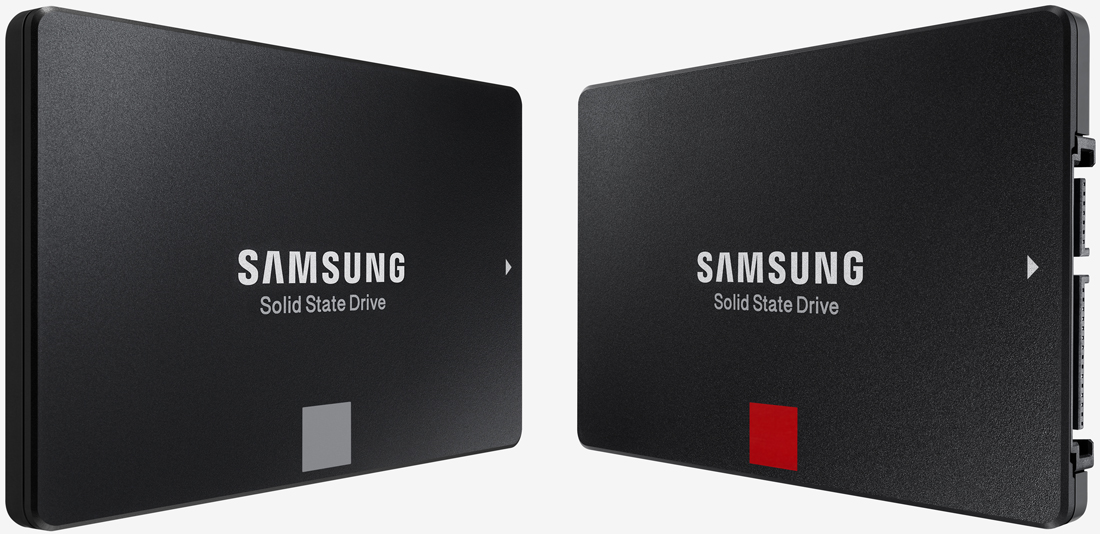
Samsung on Tuesday added two new members to its growing family of consumer-grade SSDs, the 860 PRO and the 860 EVO.
The 860 PRO, the higher-end of the two new models, offers sequential read and write speeds of up to 560MB/s and 530MB/s, respectively, with random read and write speeds of up to 100K IOPS and 90K IOPS. It’ll be offered in capacities of 256GB, 512GB, 1TB, 2TB and 4TB in a 2.5-inch form factor and comes backed by a five-year warranty, or up to 4,800 terabytes written.
The 860 EVO, meanwhile, boasts sequential read and write speeds of up to 550 MB/s and 520 MB/s with max random read and write speeds of 98K IOPS and 90K IOPS. You’ll be able to pick up an 860 EVO in capacities of 250GB, 500GB, 1TB, 2TB and 4TB capacities in your choice of 2.5-inch, mSATA (up to 2TB) or M.2 (1TB) form factors.
Like the 860 PRO, the new 860 EVO is also backed by a five-year warranty although it’s only good for up to 2,400 terabytes written. Both utilize Samsung’s MJX controller and V-NAND memory and are compatible with Samsung’s Magician software for management purposes.
Pricing starts at $94.99 for the 860 EVO and $139.99 for the 860 PRO with both drives slated to launch sometime this month.
https://www.techspot.com/news/72894-samsung-adds-860-pro-860-evo-growing-family.html